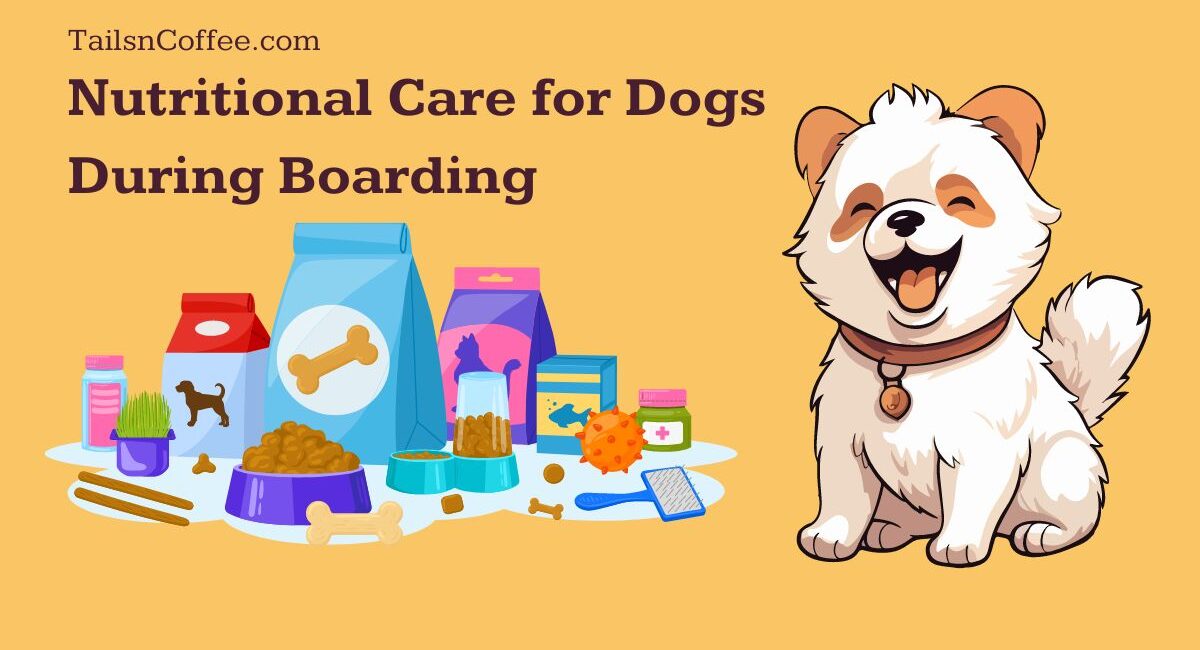When it comes to entrusting your furry friend to a boarding facility, one of the most important aspects to consider is their nutritional care. Just like humans, dogs require a balanced and nutritious diet to maintain their health and well-being. In this blog post, we’ll explore the key elements of providing proper nutritional care for dogs during their boarding stay, ensuring they remain happy, healthy, and well-fed while away from home.
Understanding Your Dog’s Nutritional Needs
Before diving into the specifics of boarding nutrition, it’s crucial to have a solid understanding of your dog’s individual nutritional requirements. Factors such as age, breed, size, activity level, and any pre-existing health conditions play a significant role in determining the optimal diet for your furry companion. Consult with your veterinarian to establish a clear picture of your dog’s nutritional needs, which will serve as a foundation for their dietary care during boarding.
Communicating Dietary Requirements to the Boarding Facility
Once you have a clear understanding of your dog’s nutritional needs, it’s essential to communicate this information to the boarding facility. Provide detailed instructions regarding your dog’s regular feeding schedule, portion sizes, and any specific dietary restrictions or allergies. If your dog requires a special diet or has any food sensitivities, make sure to supply the boarding facility with an adequate amount of their regular food to last throughout their stay.
Also Read: The Role of Experienced Staff in Providing Quality Dog Boarding Services
Meal Preparation and Serving Guidelines
To ensure your dog receives the proper nutrition during their boarding stay, it’s important to follow meal preparation and serving guidelines. Here are some key points to keep in mind:
- Individually portioned meals: Pack each meal separately in labeled, airtight containers or resealable bags. This ensures precise portion control and prevents overfeeding or underfeeding.
- Clearly labeled instructions: Include clear, written instructions on each meal, specifying the serving size, any necessary supplements, and feeding times.
- Stick to a routine: Maintain your dog’s regular feeding schedule as closely as possible to minimize stress and digestive issues.
- Fresh water: Ensure that fresh, clean water is always available to your dog throughout their stay.
Accommodating Special Dietary Needs
Some dogs may have special dietary requirements due to health conditions, allergies, or personal preferences. When boarding your dog, it’s crucial to inform the facility about any specific needs and provide them with the necessary supplies. This may include:
- Prescription diets: If your dog requires a veterinarian-prescribed diet, supply the boarding facility with an adequate amount of this food.
- Raw or homemade diets: If your dog follows a raw or homemade diet, discuss the feasibility of maintaining this during their stay. Provide detailed instructions and pre-portioned meals if the facility agrees to accommodate this request.
- Supplements and medications: If your dog takes any dietary supplements or medications, clearly label them and provide dosing instructions to the boarding staff.
Monitoring and Adjusting Nutrition During the Stay
Throughout your dog’s boarding stay, the facility staff should closely monitor their eating habits and overall well-being. If any changes in appetite, digestion, or energy levels are observed, the staff should promptly communicate this to you and make necessary adjustments to their diet in consultation with a veterinarian if needed. Regular updates on your dog’s nutritional status can provide peace of mind and allow for timely interventions if required.
Also Read: What to Look for in a Reliable Dog Boarding Facility
Conclusion
Providing proper nutritional care for your dog during boarding is a critical aspect of ensuring their overall health and happiness while away from home. By understanding your dog’s individual needs, communicating clearly with the boarding facility, following meal preparation guidelines, accommodating special dietary requirements, and monitoring their nutritional status, you can rest assured that your furry friend is receiving the best possible care. Remember, a well-nourished dog is a happy dog, and by prioritizing their nutritional needs during boarding, you’re setting them up for a positive and enjoyable experience.
FAQs:
What should I do if my dog has a sensitive stomach?
If your dog has a sensitive stomach, it’s essential to inform the boarding facility in advance. Provide them with your dog’s regular food and any necessary supplements to minimize the risk of digestive issues. You may also consider gradually transitioning your dog to a boarding-friendly diet in the weeks leading up to their stay to help them adjust.
Can I pack treats for my dog during boarding?
Yes, you can pack treats for your dog, but it’s important to do so in moderation. Clearly label the treats and provide instructions on how often they should be given. Keep in mind that overfeeding treats can lead to digestive issues and disrupt your dog’s regular diet.
What if my dog refuses to eat during boarding?
It’s not uncommon for some dogs to experience a decrease in appetite due to the stress of a new environment. The boarding facility staff should monitor your dog’s eating habits closely and try different techniques to encourage them to eat, such as hand-feeding or adding warm water to their food. If the issue persists, they should consult with you and a veterinarian to rule out any underlying health concerns.
How often should my dog be fed during boarding?
The frequency of your dog’s meals during boarding should closely mirror their regular feeding schedule at home. Most adult dogs do well with two meals per day, while puppies and senior dogs may require more frequent feedings. Communicate your dog’s usual feeding routine to the boarding facility to ensure consistency and prevent digestive issues.


